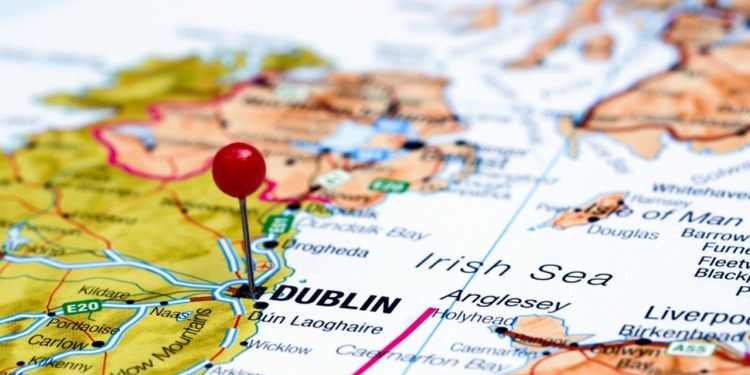
If you are looking into moving to Dublin, there are some aspects that can be hard to account for. While you will have your own expectations based on what you have heard from other people or seen online, these expectations are not always going to meet reality.
Places change in the just a few years, and websites often don't get updated. Therefore, you need to get up to date information from people on the ground. This guide shows you what the reality of living in Dublin is like in 2019.
Climate in Dublin
Most people will be aware that Irish people have a love affair with talking about the weather. The weather is usually unpredictable, and it is always a casual topic of conversation.
Generally, you can experience the weather of four different seasons in a single day. The main influencer of the weather in Ireland is the Atlantic Ocean. Therefore, the temperatures do not really have an extreme range as countries on a similar latitude. Generally, the average temperature will be mild at 50 degrees Fahrenheit.
The weather is generally better in the east of the country where Dublin is situated. The warmest months of the year are July and August. It will stay bright late, with the sun usually not setting until 11 pm or so.
In the winter, there is rarely much snow, if any. Temperatures will fall below freezing point at certain times, with January and February usually being the months when it is coldest.
Social life in Dublin
Irish people are known around the world for being social creatures. While you can't paint all Irish people with the same brush, people are usually very outgoing and enjoy their social lives.
A lot of people's social life revolves around pubs and bars, but there is also a lot to do in and around the city if you have other interests. There are many great walks and hikes available to you just outside of the city limits. There are regular concerts and festivals taking place where the people flock in their crowds.
If you enjoy the bar and pub scene, generally you should avoid the Temple Bar area. This is where most of the tourist-focused bars and pubs are located. While it will be nice to pay a visit once upon your arrival, locals generally stay away from this area, preferring a more authentic environment.
Nature
Ireland is full of rolling green fields, but Dublin city is constantly expanding. However, even if you are in the middle of the city, you can find lovely parks and green areas for you to get away from the hustle and bustle. Merrion Square and St. Stephen's Green are right in the heart of the city and are lovely green areas.
Slightly further out is the Phoenix Park, which is one of the largest recreational enclosed areas in any capital city in Europe. There is a herd of wild deer roaming the park and many different activities there to get involved in.
Outside of the city, there are endless hikes and walks to go on. These are found in the suburbs, such as Killiney, Greystones and Howth where they have lovely views of the sea. For more forest and mountain type of terrain, the neighbouring county of Wicklow is your best bet.
Cost of living in Dublin
The cost of living in Dublin is higher than in most cities in Europe. However, it is still behind the likes of Copenhagen, Oslo and Reykjavik. Without considering rent, a person on average living in Dublin will spend â¬855 per month. Out of the 384 major cities in the world, Dublin is ranked 35th for having the highest cost of living. A meal at a normal restaurant will cost about â¬15. One month of basic utilities is about â¬154, and a gym membership will cost about â¬36 on average.
We do our best to provide accurate and up to date information. However, if you have noticed any inaccuracies in this article, please let us know in the comments section below.







Comments